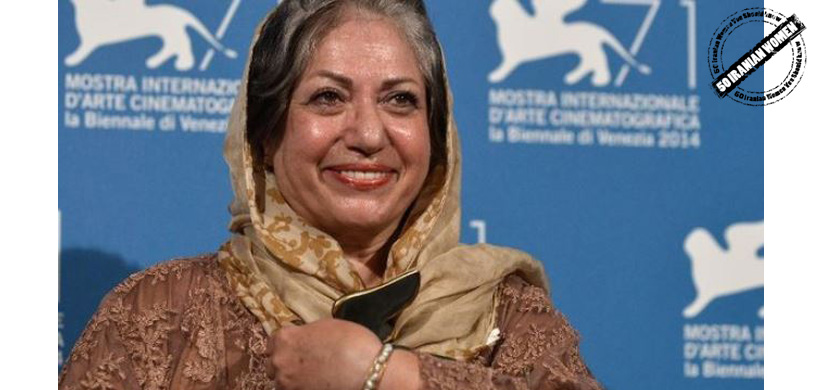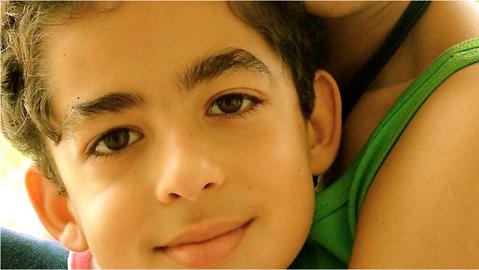Global and Iranian history are both closely intertwined with the lives and destinies of prominent figures. Every one of them has laid a brick on history’s wall, sometimes paying the price with their lives, men and women alike. Women have been especially influential in the past 200 years, writing much of contemporary Iranian history.
In Iran, women have increased public awareness about gender discrimination, raised the profile of and improved women’s rights, fought for literacy among women, and promoted the social status of women by counteracting religious pressures, participating in scientific projects, being involved in politics, influencing music, cinema... And so the list goes on.
This series aims to celebrate these renowned and respected Iranian women. They are women who represent the millions of women that influence their families and societies on a daily basis. Not all of the people profiled in the series are endorsed by IranWire, but their influence and impact cannot be overlooked. The articles are biographical stories that consider the lives of influential women in Iran.
IranWire readers are invited to send in suggestions for how we might expand the series. Contact IranWire via email ([email protected]), on Facebook, or by tweeting us.
* * *
Rakhshan Bani-Etemad is often referred to as Iran's premier female director. She has the rare honor of being loved by the Iranian public and internationally critically acclaimed. Her films focus on intractable social problems in Iran, from poverty to the situation of women. She has pushed against the limits of censorship in Iran and the authorities have often accused her of painting an unjust, bleak image of Iranian society.
Her interests in social problems are not merely artistic. When, in 2014, her film Tales won the best screenplay award at the Venice International Film Festival, she auctioned off her prize to build a shelter for homeless women. She has launched humanitarian campaigns, including raising funds to buy overcoats for laborers to protect them from the winter cold.
Bani-Etemad was born in Tehran in 1954. Her parents wanted her to become a teacher, but from an early age she was interested in film. She received a Bachelor’s degree in film studies from Tehran University’s School of Cinema and Theater. She started her career by working as a scriptwriter for the Islamic Republic of Iran Broadcasting (IRIB). Soon she was making documentaries for IRIB, an experience that sparked her interest in social issues.
She made her directorial debut in 1987 with Off Limits, a movie about one man and a neighborhood’s response to flawed law and order, bureaucracy and the inability of local authorities to protect the people for which it is responsible. Off Limits and Bani-Etemad’s next two films were not successful, and were panned by critics.
In 1992 Bani-Etemad’s fourth feature, Nargess, became a success with critics and movie-goers alike. Fajr Film Festival in Tehran awarded her best director, making her the first female director to receive this award. The movie, according to one review, “pushes the limits, both of Iran's strict censorship laws and our expectations, in being an exceptionally sensitive portrayal of two very different women and a sympathetic treatment of characters who live outside of Islamic law, on the margins of Iranian society.”
Nargess was the first movie in what became known as the City Trilogy. The third film in the trilogy was the 2001 Under the Skin of the City, which won the Special Golden St. George Prize at the 23rd Moscow International Film Festival.
Besides receiving awards for her films, Bani-Etemad also received an honorary doctorate from University of London’s School of Oriental and African Studies (SOAS) in 2008.

Most of the protagonists in Bani-Etemad’s films are women, who show resilience in the face of social, economic and legal adversities. But she rejects the label of feminist filmmaker and says her concerns are all people in the lower rungs of Iranian society.
Her feature films reflect the same interests she highlights in her documentaries. She often spends time living with families whose lives are similar to the characters in her movies. For example, in 2004, when she wanted to make a feature film about the repercussions of the devastating 1980-1988 war between Iran and Iraq, she spent a year and a half living in a village that was still suffering from the after-effects of the war.
She said an interview that she pursues cinema “beyond the art and film itself...as a way to create social change... you know, to try and change someone’s life”.
Many characters in her latest film, Tales, have featured in her earlier films. “When you look at the characters and their life in the past 20 or so years, their situation hasn’t really changed for the better,” she said when asked about this approach. “However, what is very important is that they have changed to become better people. I guess that’s what drove me and was most important for me.”
As the title indicates, Tales is a collection of vignettes, looking at a range of issues, from prostitution to corruption in government bureaucracies. The movie was made prior to 2014, but President Mahmoud Ahmadinejad’s administration refused to grant a permit for a public screening. The government of President Hassan Rouhani granted a permit, but the version shown at international film festivals is different to the one screened in Iran. Nevertheless, Iranian state television condemned the film as “defamatory”.
“Naturally as a filmmaker in Iran, and with films that are dealing with very sensitive social issues, I would be quite careful and aware of how to make a film that is actually reachable because I’d never want to make a film that isn’t able to be seen in Iran,” she said about the two versions of the film. “But never to the point where I would be self-censoring or creating compromises. I’ll have a vision of what I want to pursue but then obviously to make films in Iran, you need to find creative ways of bypassing censorship, and telling what you want to tell, without compromise.”
Politically, Bani-Etemad is a reformist. She supported reformist President Mohammad Khatami and in the run up to the disputed 2009 presidential election she supported the reformist candidate Mir Hossein Mousavi, who has been living under house arrest since then. For her support, the hardliner media have included her name in the blacklist of “seditionist” artists.
Bani-Etemad is married to the Iranian film producer Jahangir Kosari. Their daughter Baran Kosari is a professional actress and has appeared in some of her mother’s movies.
“I hope for a day when I would have no subjects left to make movies about,” she said during a ceremony honoring her for her charitable work. Chances are that, contrary to her wishes, she will not run out of subjects anytime soon.
Also in the series:
50 Iranian Women you Should Know: Jinous Nemat Mahmoudi
50 Iranian Women you Should Know: Simin Behbahani
50 Iranian Women you Should Know: Forough Farrokhzad
50 Iranian Women you Should Know: Parvin Etesami
50 Iranian Women you Should Know: Farokhru Parsa
50 Iranian Women you Should Know: Jamileh Sadeghi
50 Iranian Women you Should Know: Fatemeh Daneshvar
50 Iranian Women you Should Know: Fatemeh Moghimi
50 Iranian Women you Should Know: Googoosh
50 Iranian Women you Should Know: Sima Bina
50 Iranian Women you Should Know: Tahereh Qurratu'l-Ayn
50 Iranian Women you Should Know: Farah Pahlavi
50 Iranian Women you Should Know: Pardis Sabeti
50 Iranian Women you Should Know: Mahsa Vahdat
50 Iranian Women you Should Know: Maryam Mirzakhani
50 Iranian Women you Should Know: Fatemeh Karroubi
50 Iranian Women you Should Know: Shirin Ebadi
50 Iranian Women you Should Know: Mehrangiz Kar
50 Iranian Women you Should Know: Narges Mohammadi
50 Iranian Women you Should Know: Zahra Rahnavard
50 Iranian Women You Should Known: Leila Hatami
50 Iranian Women You Should Known: Golshifteh Farahani
50 Iranian Women you Should Know: Susan Taslimi
50 Iranian Women you Should Know: The Khomeini Women
50 Iranian Women you Should Know: Nasrin Moazami
50 Iranian Women you Should Know: Masih Alinejad
50 Iranian Women you Should Know: Lily Amir-Arjomand
50 Iranian Women you Should Know: Effat Tejaratchi
50 Iranian Women you Should Know: Tahmineh Milani
50 Iranian Women you Should Know: Minoo Mohraz
50 Iranian Women you Should Know: Bibi Khanoom Astarabadi
50 Iranian Women you Should Know: Nafiseh Koohnavard
50 Iranian Women you Should Know: Ashraf Pahlavi
50 Iranian Women you Should Know: Shahla Sherkat
50 Iranian Women you Should Know: Sattareh Farman-Farmaian
50 Iranian Women you Should Know: Marjaneh Halati
50 Iranian Women you Should Know: Bita Daryabari
50 Iranian Women you Should Know: Mahnaz Afkhami
visit the accountability section
In this section of Iran Wire, you can contact the officials and launch your campaign for various problems


























comments